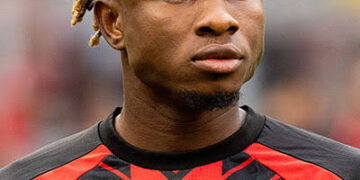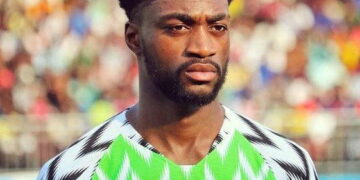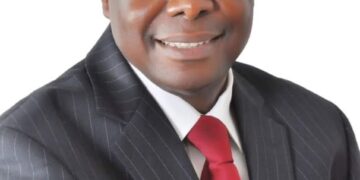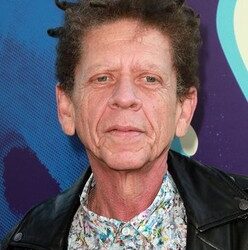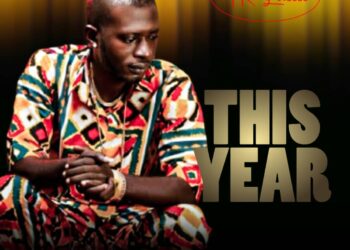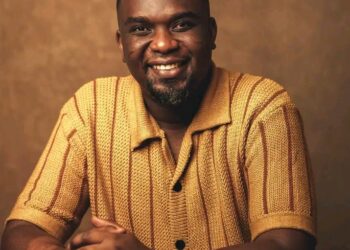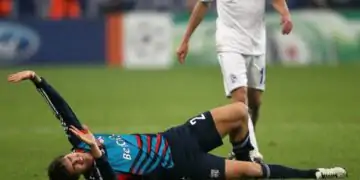Peter Rufai, famously known as “Dodo Mayana,” was a distinguished Nigerian goalkeeper who made a lasting impact on African football. Born into a royal family, Rufai chose to pursue a career in football, becoming one of Nigeria’s most celebrated sports figures. His commanding presence in goal, remarkable reflexes, and leadership skills made him a key player for the Super Eagles during their golden era in the 1990s.
Profile Summary
| Full Name | Peter Rufai |
| Date of Birth | August 24, 1963 |
| Place of Birth | Lagos, Nigeria (Oshodi area) |
| Nationality | Nigerian |
| State of Origin | Lagos State |
| Partner | Mikaila Rufai |
| Children | Several, including eldest son Senbaty |
| Occupation | Professional Footballer (Goalkeeper), Sports Developer, Academy Founder |
| Date of Death | July 3, 2025 |
Early Life and Education
Peter Rufai was born on August 24, 1963, in the Oshodi area of Lagos State, Nigeria. Coming from a royal background as the son of a traditional ruler in Idimu, Lagos, he earned the nickname “Dodo Mayana,” reflecting his noble heritage.
Despite his privileged upbringing in a polygamous family, Rufai was passionate about football from a young age.
Growing up, he played football in the streets of Lagos, showing great determination despite limited resources.
Although his father hoped he would focus on royal responsibilities and education, Rufai was determined to follow his passion for football.

He had five siblings: Gladys, Bruce, Mary, Josephine, and Patience. His mother, Mrs. Christiana Roseline Ilamina Jaja Rufai, passed away in 2012 and was laid to rest in Port Harcourt.
Career
Club Career
Rufai began his football career in Nigeria, playing for Stationery Stores F.C. and Femo Scorpions in the early 1980s. He quickly gained recognition, helping Stationery Stores reach the 1981 Africa Cup Winners’ Cup final, where they narrowly lost to Cameroon’s Union Douala.
In 1986, he moved to Benin Republic to play for AS Dragons FC de l’Ouémé, marking his first professional stint outside Nigeria. He then spent six years in Belgium with K.S.C. Lokeren and K.S.K. Beveren, although he had limited appearances.
The 1993-94 season saw Rufai join the Dutch club Go Ahead Eagles, where he played 12 matches and helped the team finish mid-table in the Eredivisie.
This paved the way for a successful period in Portugal with S.C. Farense, where he was a key figure in the club’s defense and helped them qualify for the UEFA Cup for the first time.
Rufai later moved to Spain, joining Hércules CF, although the team was relegated during his tenure. He then signed with Deportivo de La Coruña, serving as backup goalkeeper and contributing to notable victories, including a clean sheet against CD Tenerife.
He wrapped up his European career with Gil Vicente FC in Portugal before retiring in 2000, concluding a two-decade-long professional journey across four countries.
International Career
Rufai earned 65 caps for Nigeria, debuting in December 1981. He was a vital part of the national team during the 1980s and 1990s, helping Nigeria finish as runners-up in the Africa Cup of Nations in 1984 and 1988.
His greatest achievement came in 1994 when he helped Nigeria win the Africa Cup of Nations in Tunisia, delivering crucial penalty saves throughout the tournament.
He captained Nigeria in their first-ever FIFA World Cup appearance in 1994 and again in 1998, leading the team to the Round of 16 on both occasions.
Remarkably, Rufai also scored a goal for Nigeria—a penalty during a 6-0 AFCON qualifying win against Ethiopia in 1993—making him one of the rare goalkeepers to score internationally.
Personal Life

Peter Rufai was married to Mikaila Rufai, and they had several children, including their eldest son Senbaty, who pursued a football career as a midfielder with Sunshine Stars in Nigeria.
Despite his royal heritage, Rufai chose to focus on football rather than traditional leadership roles. After his father’s death in 1998, he declined the opportunity to become king of Idimu to continue his football career.
Fluent in multiple languages, including English, Spanish, Portuguese, Dutch, Hausa, Yoruba, and Igbo, Rufai also earned a Master’s degree in Business Administration and engaged in business ventures after retiring from football.
Death
Peter Rufai passed away on July 3, 2025, at the age of 61, after a long illness. He died peacefully at his home in Idimu, Lagos. His death was confirmed by close associates and mourned widely across Nigeria and the football world.
The Nigeria Football Federation and President Bola Tinubu paid tribute to him as a football legend and national hero.
Legacy
Rufai’s influence extended beyond his playing days. He founded the Staruf Football Academy in Lagos, dedicated to developing young football talent. The academy has produced players who have gone on to represent Nigeria internationally and secure opportunities abroad.
He also ran several sports development companies and traveled internationally to mentor and inspire aspiring athletes. Rufai was a trailblazer for Nigerian footballers in Europe, setting a standard of professionalism and leadership that continues to inspire.
His nickname, “Dodo Mayana,” remains synonymous with goalkeeping excellence in Nigeria, and his contributions to the national team’s successes in the 1990s are celebrated as some of the greatest moments in Nigerian sports history.


